
So Good They Can't Ignore You: Why Skills Trump Passion in the Quest for Work You Love
Cal Newport, Dave Mallow, et al.
4.5 on Amazon
37 HN comments

The Richest Man in Babylon: Original 1926 Edition
George S. Clason , Charles Conrad, et al.
4.7 on Amazon
37 HN comments

Basic Economics
Thomas Sowell
4.8 on Amazon
35 HN comments
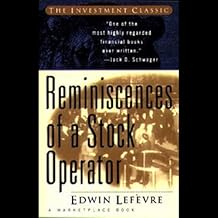
Reminiscences of a Stock Operator
Edwin Lefevre, Rick Rohan, et al.
4.6 on Amazon
35 HN comments
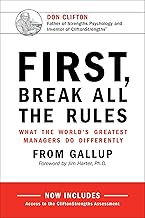
First, Break All the Rules: What the world's Greatest Managers Do Differently
Jim Harter, Marcus Buckingham , et al.
4.6 on Amazon
34 HN comments
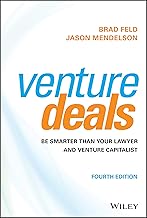
Venture Deals: Be Smarter Than Your Lawyer and Venture Capitalist
Brad Feld and Jason Mendelson
4.7 on Amazon
31 HN comments
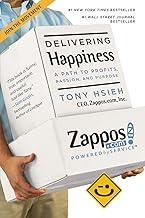
Delivering Happiness
Tony Hsieh
4.6 on Amazon
30 HN comments
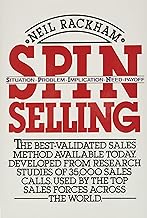
SPIN Selling
Neil Rackham
4.5 on Amazon
30 HN comments

Nickel And Dimed: On (Not) Getting By In America
Barbara Ehrenreich
4.3 on Amazon
29 HN comments

The Five Dysfunctions of a Team: A Leadership Fable
Patrick Lencioni
4.6 on Amazon
28 HN comments

The Startup Owner's Manual: The Step-By-Step Guide for Building a Great Company
Steve Blank and Bob Dorf
4.5 on Amazon
27 HN comments

Give and Take: A Revolutionary Approach to Success
Adam M. Grant PhD, Brian Keith Lewis, et al.
4.6 on Amazon
25 HN comments

Titan: The Life of John D. Rockefeller, Sr.
Ron Chernow
4.7 on Amazon
23 HN comments

The Challenger Sale: Taking Control of the Customer Conversation
Matthew Dixon and Brent Adamson
4.5 on Amazon
22 HN comments
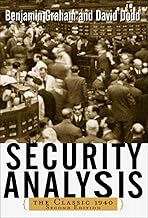
Security Analysis: Principles and Techniques
Benjamin Graham and David Dodd
4.7 on Amazon
22 HN comments
ihumanableonFeb 10, 2020
netghostonAug 5, 2016
chrisguitarguyonDec 13, 2012
[1] http://en.wikipedia.org/wiki/Nickel_and_Dimed
luser001onMay 18, 2012
The $3 beer incident was poignant.
I found the book 'Nickel and Dimed' eye-opening.
Good job with your kid!
dontbeevil1992onJan 13, 2021
kqr2onFeb 2, 2009
So life at Wal-Mart may have changed since then. Also, he should have worked at the same Wal-Mart to help control for location.
binarymaxonOct 4, 2011
Its been a while since I've read Ehrenreich's book but am curious - which decisions of hers did you find irrational?
I will say that a fundamental flaw in Nickel and Dimed, (and most likely in Shepard's book as well) - is that she ultimately had a choice. Many people in these situations have no choice. Many of them have children. Many of them have no college education to fall back on. I count myself among the lucky.
ajmurmannonAug 25, 2018
Also keep in mind that the author of the article is going to a boot camp. He is not getting paid, but paying. Once he is done he will likely earn ~$100k and can move into better conditions. It's very unfortunate that the author never was able to talk to the people he lived with who already had a job and find out why they still live there. Maybe they were just saving a ton of money. I knew someone who was earning a good tech salary, but chose to commute every day from Dublin for hours. That guy chose to safe the money and bought a gold coin every month.
shawnee_onSep 5, 2017
A lot of the biggest, easiest wealth made in America is derived from screwing over poor people at scale / en masse. I highly recommend Nickel and Dimed by Barbara Ehrenreich for some pretty good examples of this.
pmoriartyonMay 2, 2021
A quote from the book:
"When someone works for less pay than she can live on ... she has made a great sacrifice for you ... The "working poor" ... are in fact the major philanthropists of our society. They neglect their own children so that the children of others will be cared for; they live in substandard housing so that other homes will be shiny and perfect; they endure privation so that inflation will be low and stock prices high. To be a member of the working poor is to be an anonymous donor, a nameless benefactor, to everyone."
[1] - https://en.wikipedia.org/wiki/Nickel_and_Dimed
dizzystaronDec 2, 2017
As I tell anyone, the only reason Los Angeles can have so many gyms is because the working homeless needs to take a shower too.
On the one hand, I'm glad that this topic is getting more attention, but I'm uncomfortable with the thought that Amazon is the poster child for this, when they are one of the few companies that has low wage workers working full time, which is very rare in this day of required health care.
brightsizeonDec 24, 2017
bjourneonJune 7, 2017
AnimatsonDec 21, 2015
linkmotifonJune 2, 2017
This is not likely. Highly recommend the part about being a Walmart employee in the book "Nickel and Dimed". As another commenter wrote, these guys are just offloading benefits and depreciation and other capital costs on employees who are already living in poverty. These guys are most literally evil.
cratermoononDec 2, 2017
digitaltreesonMar 18, 2020
The truth is most American's wages have gone to Health Insurance, College, and Housing.
See https://www.msn.com/en-us/money/personalfinance/this-chart-i...
mapgreponJune 25, 2011
Ironically, the referenced book (http://en.wikipedia.org/wiki/Scratch_Beginnings) was specifically written to rebut Barbara Ehrenreich's first person book on poverty, Nickel and Dimed. A major theme of that book is the debilitating impact of catastrophic costs, health care in particular, on the poor. "Without health insurance you risk a small cut becoming infected because you can afford neither a visit to the doctor nor antibiotics... [an] impacted wisdom tooth requir[ed] frantic calls to find a free dental clinic" was the NYTimes summary (http://www.nytimes.com/books/01/05/13/reviews/010513.13galla...)
So the book referenced by the grandparent comment was derailed exactly as predicted in the very book it was trying to rebut.
It is not only the poor who like "things that make life less boring." We all do, and I'd argue we all need these things for sanity. That's why I don't beat myself up too hard for occasionally wasting time doing things like, say, posting comments on Hackers News.
oldsklgdfthonJune 7, 2020
2. Play devil's advocate with the information you get.
Personally, i think it's important to remember that the world is very complex and 2 views can be different and at the same time true.
Nickel and Dimed[0] is a book on low-wage jobs and how it is difficult to get by without support from some kind of social program.
Scratch beginnings[1] is the story of a guy that tried to live in a shelter and get by. In ten months he had moved into an apartment, bought a pickup truck, and had saved around $5,300.
Both these stories are opposing, in the logical sense. But they also real. Exploring different perspective helps dispel the notions that there is one "truth".
[0] https://en.wikipedia.org/wiki/Nickel_and_Dimed
[1] https://en.wikipedia.org/wiki/Scratch_Beginnings
luser001onAug 29, 2012
Everybody Loves a Good Drought: P. Sainath. There's a haunting picture there of an emaciated man who climbs trees to gather toddy. The most poignant thing about it was that he needs protein since he does hard physical labor. The solution is for him alone to eat a couple of tablespoons of fish everyday (no other member of his family gets to do so).
Nickel and Dimed: On (Not) Getting By in America, Barbara Ehrenreich.
This book explains why some poor people have no savings. E.g., they have to live in relatively expensive pay-by-the-day motels instead of apartments since they literally don't have the $500 to put up a month's rent as deposit.
_jalonMay 19, 2018
_Nickel and Dimed_[1] is oldish, but still highly relevant, if you want to read a depressing book.
[1] http://barbaraehrenreich.com/nickel-and-dimed-by-barbara-ehr...
https://www.amazon.com/Nickel-Dimed-Not-Getting-America/dp/0...
dextoriousonOct 20, 2011
http://en.wikipedia.org/wiki/Nickel_and_Dimed
A small road trip in South Dakota, Mississippi, Alabama et al would also be insightful.
sachinagonOct 24, 2010
dalkeonSep 15, 2011
Your argument about "one true objective definition of poverty" is pointless. What you're arguing is that since we're materially better off than the Middle Ages, no one is poor anymore. You want to throw the word "poor" out the window, while I want to say that the word has real meaning, and that meaning is "lacking the resources to meet the basic needs for healthy living; having insufficient income to provide the food, shelter and clothing needed to preserve health."
Your disdain for the government is clear, but without justification since any statement you make can be rejected with an equally disdainful comment on its originator. Better would be to point out how most families of four, making under $22,350 a year really have no problems meeting those basic needs. Books like "Nickel And Dimed" suggest otherwise. I look forward to your large scale research which clearly refutes such anecdotal evidence.
kaitaionFeb 23, 2016
To start off my minimalist college years, my mother brought me to the local Goodwill where I bought one fork, one knife, one spoon, one bowl, etc. Had to add chopsticks to get a really complete eating set, but these got me off to a good start. Even this minimalist set (chopsticks, knife, spoon, bowl, wooden mixing spoon, pot) require space, and they don't allow you to bake cookies (need a baking sheet!). I was nowhere near homeless though I could fit all my belongings into one room as wide as the length of a twin bed.
Sivers knows that if he wants to make pastries, he can buy or borrow pastry-making equipment -- just as I can. So he doesn't need to keep it around. Those with little by necessity rather than choice don't have that confidence.
Not wanting stuff is for people who have access the stuff they need.
dbtxonDec 4, 2019
I was mildly disgusted when required reading for freshman orientation at Akron U included a book called Nickel and Dimed. The gist was something like "get your education or you're screwed". But people made it that way in the first place! Everyone supposedly needing formal higher education in order to have any decent future isn't something that just happens, it's something the human race is doing to itself. Leave it to a higher education institution to push the idea that "this is just the way it is, do the right thing if you know what's good for you".
edit: obvs I didn't read the book, it's not exactly like I said. I think I bought the book but dropped that "class" anyway
In a similar way, stupid "trends" like social media buttons and Like buttons are just examples of how everyone is ruining the web together. These days it's the aforementioned massive JS frameworks and SPAs and of course the obsession with "analytics." In a way it's nice for me and my workstation because it helps drive up the current average affordable densities of RAM and storage, but ...it's slavery. And Google seems to be less and less bashful about it.
"you are slaves of whatever you submit to by obeying" --that guy
lhorieonMay 24, 2018
[1] https://en.wikipedia.org/wiki/Nickel_and_Dimed
binarymaxonOct 4, 2011
allweinonOct 4, 2011
As a counter to this, I highly recommend Scratch Beginnings by Adam Shepard.
http://www.amazon.com/gp/product/0061714275/ref=as_li_ss_tl?...
The summary, from Amazon:
Adam Shepard graduated from college feeling disillusioned by the apathy around him and was then incensed after reading Barbara Ehrenreich's famous work Nickel and Dimed—a book that gave him a feeling of hopelessness about the working class in America. He set out to disprove Ehrenreich's theory—the notion that those who start at the bottom stay at the bottom—by making something out of nothing to achieve the American Dream.
Shepard's plan was simple. With a sleeping bag, the clothes on his back, and $25 in cash, and restricted from using his contacts or college education, he headed out for Charleston, South Carolina, a randomly selected city with one objective: to work his way out of homelessness and into a life that would give him the opportunity for success. His goal was to have, after one year, $2,500, a working automobile, and a furnished apartment.